|
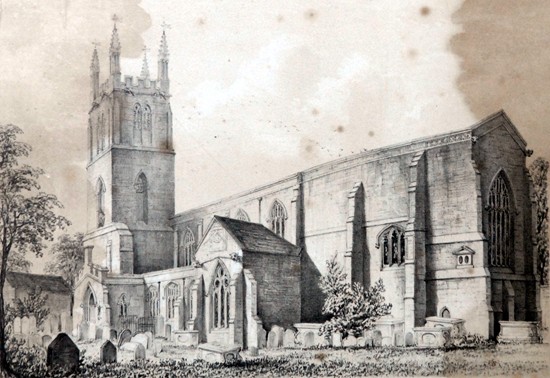 |
|
This engraving from circa 1860 is the work of
William Sang, a printer and book seller who had premises in the
market place |
|
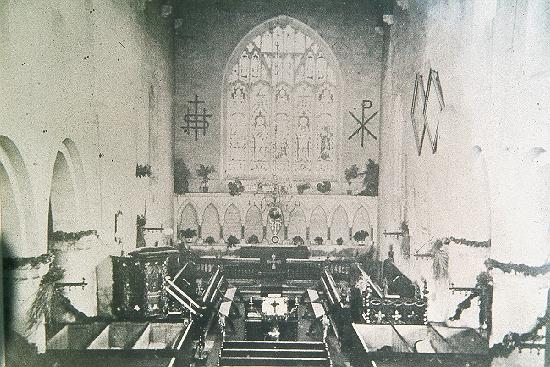 |
|
This
photograph shows the church decorated for the
harvest festival on Sunday 13th September 1868 when the box pews of
earlier times and the double aisle are still in evidence.
|
|
 |
|
The nave in 1873 photographed by William Redshaw
and again in 1880 (below). |
|
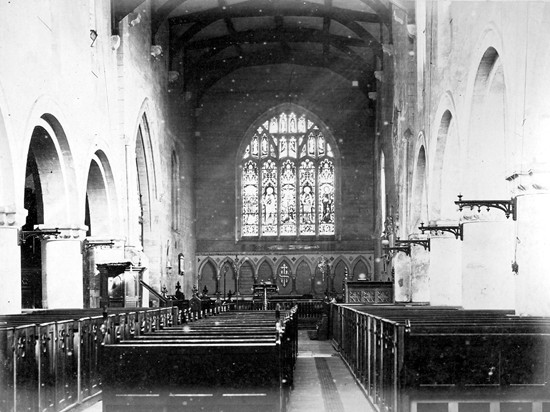 |
|
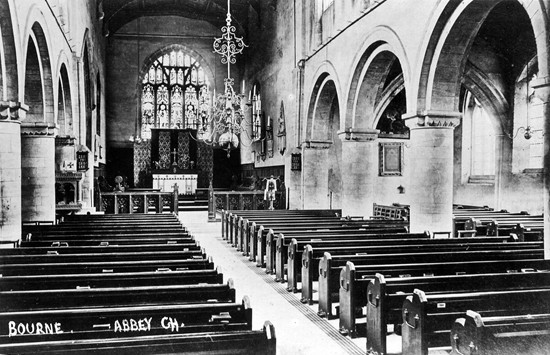 |
|
This picture by an unknown photographer
was taken circa 1875 and the view below is by William Redshaw from 1893 showing the
newly installed stone pulpit.. |
|
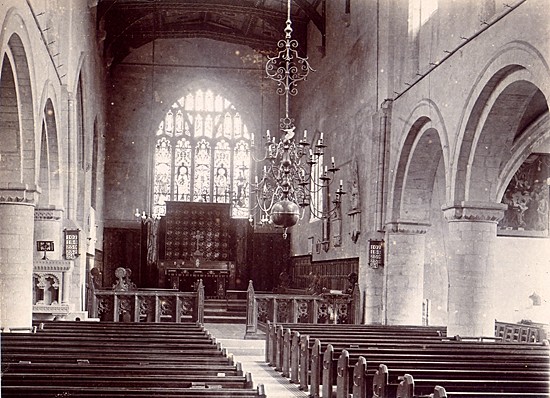 |
|
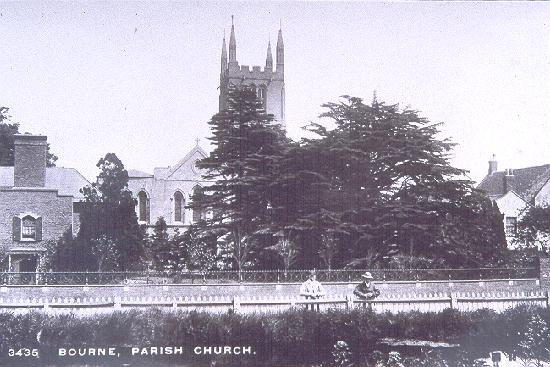 |
|
This view
of the church is taken from a postcard published circa 1895. The
fence on which the two people are leaning was later replaced by iron palisade
railings, similar to those erected in 1869 further along South Street and
which survive to this day. The railings on the wall in
front of The Cedars (now Bourne Eau House) on the opposite side of South
Street have also gone, perhaps cut down during the Second World War during
an ill-advised government drive for scrap metal for the production of
munitions |
|
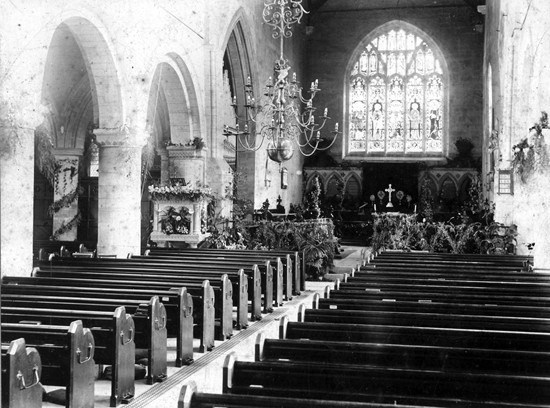 |
|
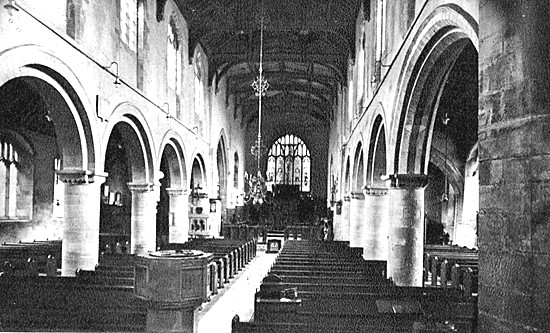 |
|
The new stone pulpit can be clearly seen in
these two views from circa 1895. |
|
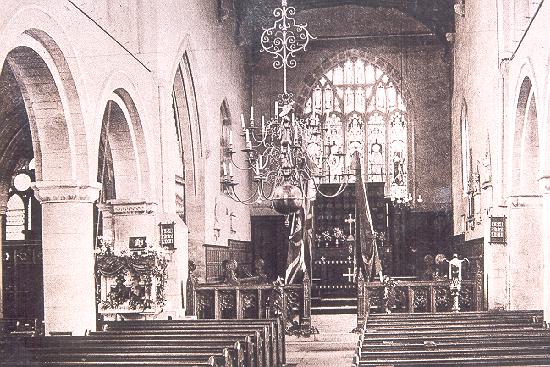 |
|
The church
is decorated here, probably for the patronal festival, circa 1895.
|
|
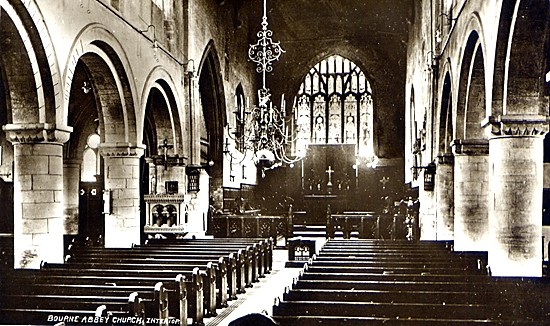 |
|
The nave from circa 1900. |
|
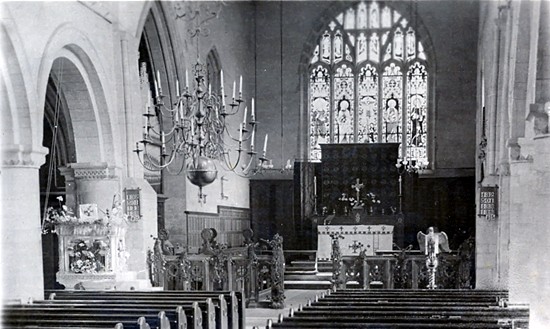 |
|
Postcard view of the nave from 1900. |
|
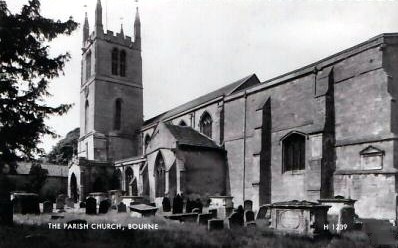 |
|
The view of the Abbey Church above is from a picture
postcard published circa 1900 and the three photographs below are reproduced
from a pictorial guide published in the same year.
|
|
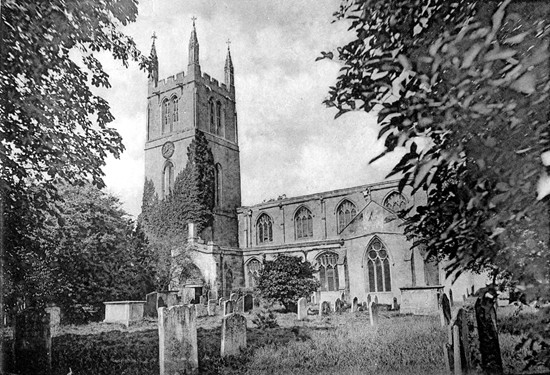 |
|
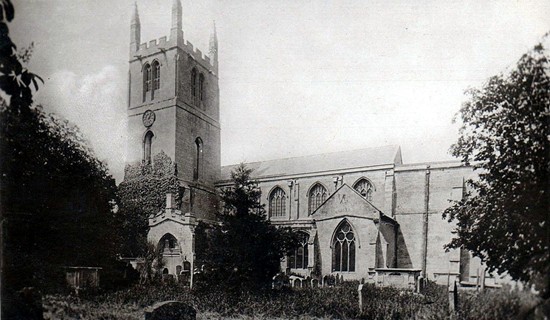 |
|
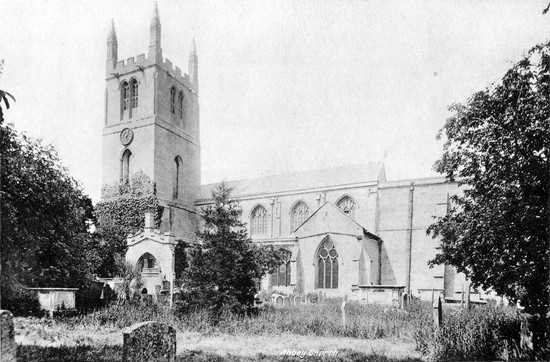 |
|
The west front of the Abbey Church photographed
for the book Historic Bourne by Asbhy Swift and published by Joseph
J Davies in 1909. In the book, Davies speculates that the church was
founded by the Saxons in the 8th century but this church was
destroyed in one of the raids by Danish invaders and that the
present building, founded by Baldwin Fitzgilbert in 1138, was
inspired by an act of piety by the zeal of a famous neighbour,
Gilbert of Sempringham, who was subsequently "honoured for his high
courage in God's service, for his learning, humility, and for his
success in the institution of the only purely English monastic
order". |
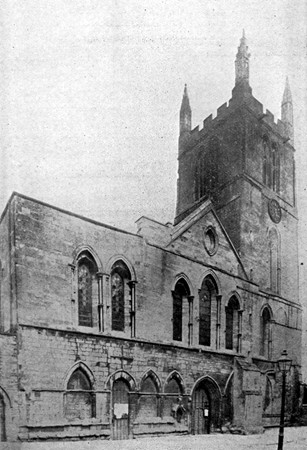 |
|
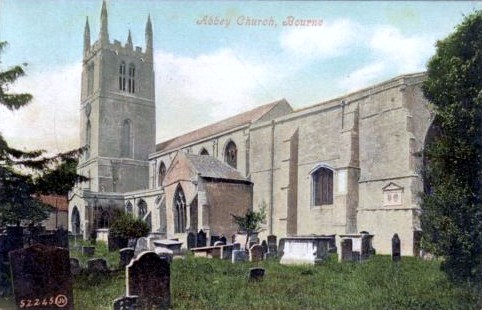 |
|
A picture postcard view from 1906. |
|
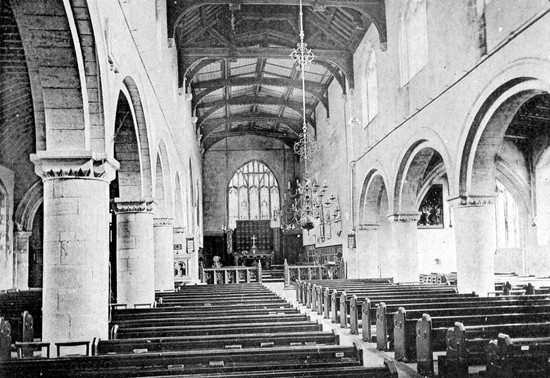 |
|
Three views of
the church interior taken by Ashby Swift circa 1910.
|
|
 |
|
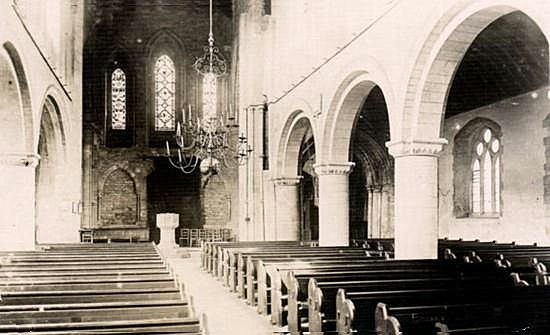 |
|
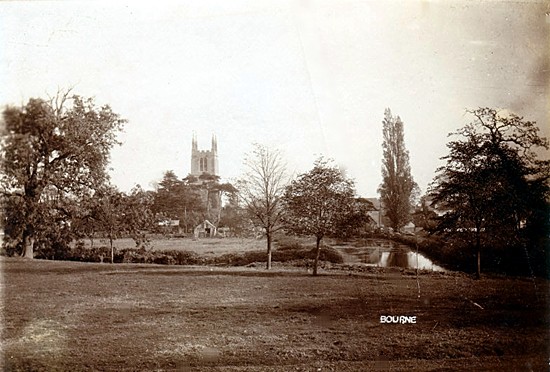 |
|
The Abbey Church from the Wellhead fields from
a postcard photograph taken by William Redshaw circa 1920. |
|
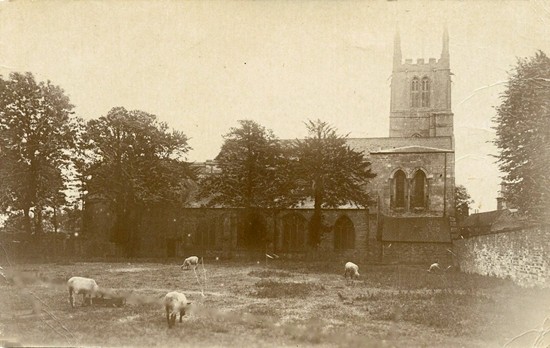 |
|
Sheep grazing on what is now the front lawn of
the new vicarage from a postcard dated 1914 and (below) another
postcard showing Church Walk from circa 1920. |
|
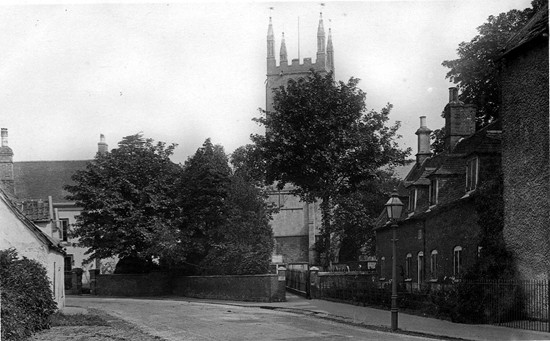 |
|
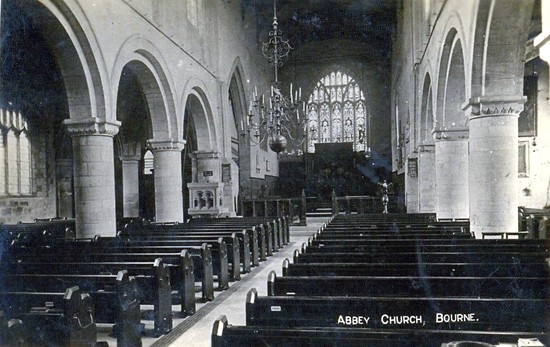 |
|
Postcard photograph of the nave from 1928. |
|
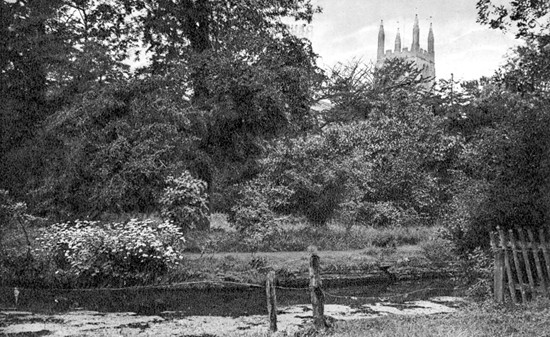 |
|
Postcard view of the Abbey Church tower from
the river taken circa 1945. This area is now part of The Cedars
retirement home. |
|
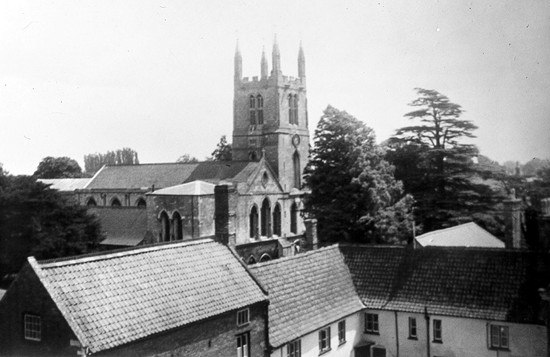 |
|
A rooftop view of the church from circa 1950. |
|
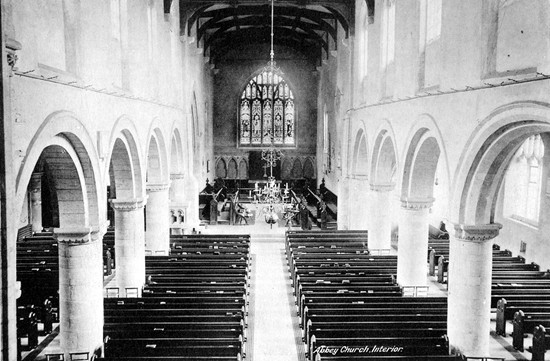 |
|
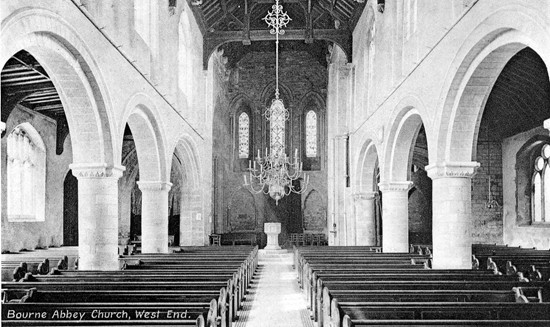 |
|
Two much later views of the interior possibly
circa 1950. |
|
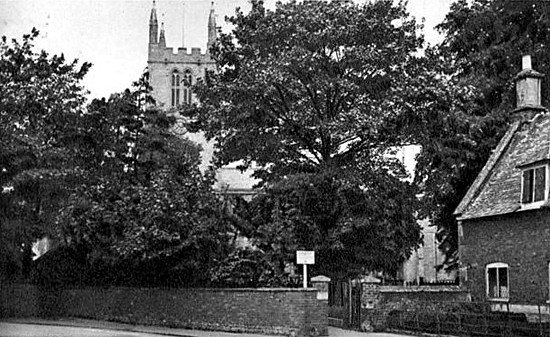 |
|
A postcard view of the church from South Street
circa 1950. |
|
This line drawing of the Abbey Church
from
Church Walk is the work of
Mrs A E Macleod of Cawthorpe and
was
completed in 1951 as the front page illustration for the booklet
entitled The Story of the Abbey Church by C Pask Matthews. It was
later used on the front cover of several issues of the parish
magazine. |
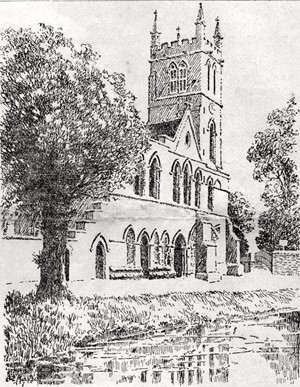 |
|
|
 |
A photograph of the Abbey Church taken from the south and
showing the white picket fence along the bank of the Bourne
Eau which was later replaced by iron rails to match the
palisade
fencing along the other section towards town. This photograph
is taken from a picture postcard published circa 1965, most
probably by a publisher who was unfamiliar with the town
because the caption describes it as
"Canal and parish church, Bourne" rather than the
Bourne Eau. |
|
|
Another photograph of the Abbey Church
from South Street was published in 1977 when it was
used to illustrate the souvenir programme for Bourne's Silver
Jubilee celebrations for Queen Elizabeth II on Tuesday 7th
June. The picture again shows the
white picket fence along the
bank of the Bourne Eau. The
red brick wall has also since been extended to the edge of
Bourne
Eau House while the trees and shrubbery have grown
considerably and now practically obscure the view of the
church. |
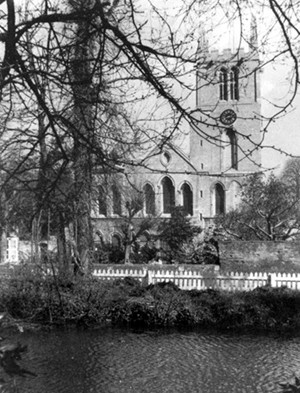 |
|